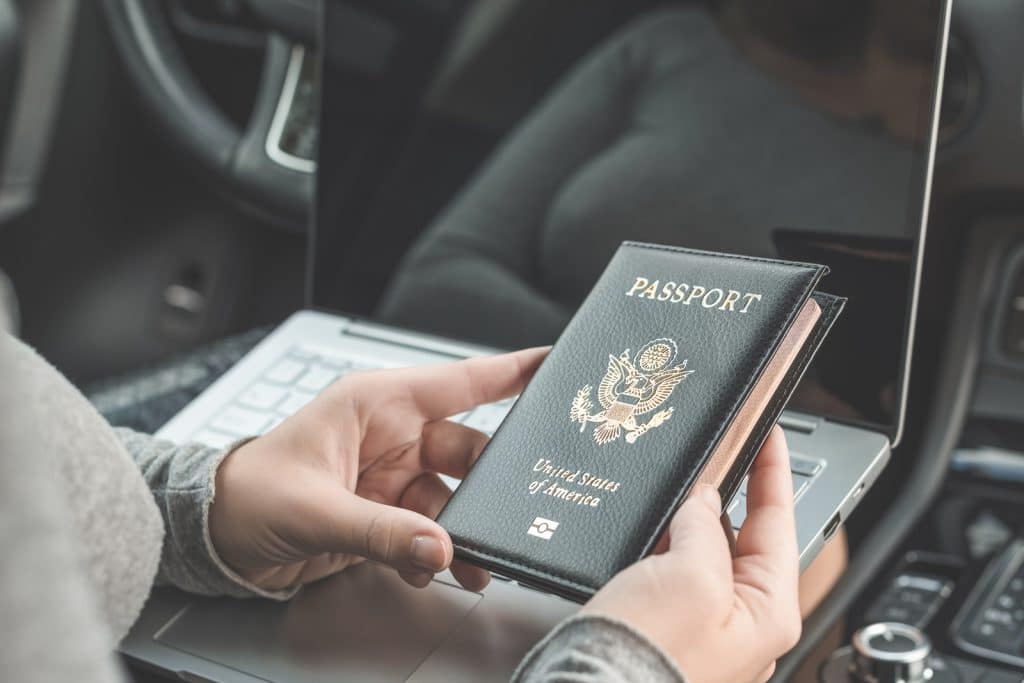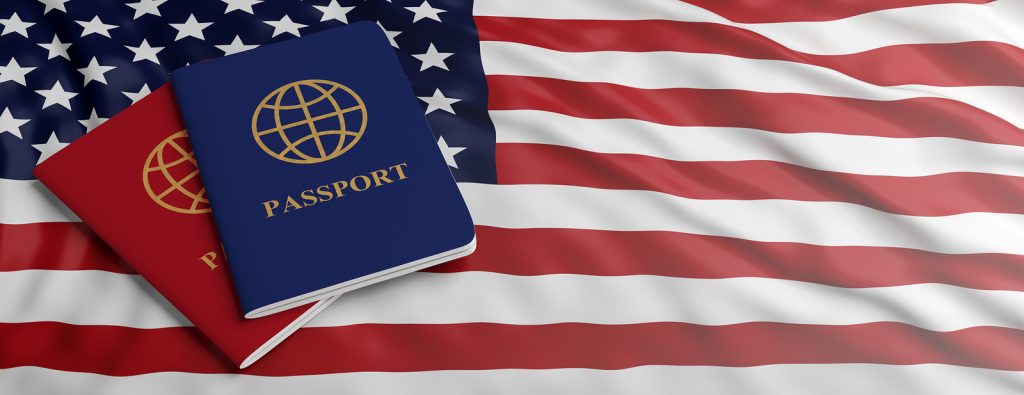How to Become a Tax-Compliant Accidental American
September 30, 2023 | Accidental American | 5 minute read
Expat Tax Blog. Tax Tips for US Americans abroad.
Updated January 13, 2025
 All blogs are verified by Enrolled Agents and CPAs
All blogs are verified by Enrolled Agents and CPAs
Updated January 13, 2025

Did you know there is a rather straightforward process to get you back on the tax-compliant track with the IRS if you are an Accidental American? Read on as we’ve compiled all the relevant information you’ll need in this one handy guide!
What are Accidental Americans?
According to our Relief Procedures for Certain Former Citizens blog, an Accidental American is someone who is born abroad to at least one US parent and will usually acquire American citizenship at birth. However, this is only if the parent takes the necessary steps to make it so, usually by registering their child at the US Embassy in the foreign country where they gave birth.
Additionally, Accidental Americans are citizens born in the US to foreign parents OR were born outside the country to American parents and are unaware of their status as US citizens.
By law, all US citizens should report and pay their (worldwide) taxes to the IRS every year. This means that even if you live abroad in Mexico as a US citizen, you still have to file yearly. So, if you want to renounce your citizenship, you have to ensure you’re all up to date on paying and filing your US taxes.
With the introduction of FATCA in 2010, foreign banks and institutions must determine whether their customers are US Americans abroad. If yes, they will need to report certain information about the customer’s account to the IRS every year. It’s to prevent money laundering in “offshore” bank accounts. So that’s why if you are opening a foreign bank account as a US expat and show your US passport, the teller may inform you of the large amount of paperwork involved in the process.
What is FATCA?
FATCA stands for Foreign Account Tax Compliance Act. It is a US federal law that requires all non-US financial institutions to report their US customers’ financial records to the US Department of the Treasury. If your foreign bank doesn’t comply with this standard, it will be hit with significant business consequences and obstacles from the US
You may ask why the US Department of the Treasury needs info on financial records. The short answer is to prevent money laundering in “offshore” bank accounts. That’s why if your local bank manager finds out that you’re a US Citizen, they may overreact by threatening to close your bank account.
Yes, you will have to fill out and sign a lot of paperwork giving the US Department of the Treasury access to peak into your bank details. However, unless you’re doing some illegal money laundering, they will most likely stay out of your financial records.
W8-BEN and W9
If the bank manager gives you a W8-BEN, please inform them that, as a US Citizen, the correct form for you is a W9. We see this mistake happen way too often from our customers at MyExpatTaxes. On the W9, you will be asked for your Social Security Number. If you don’t have one, make sure you read the following sections…
Fulfill your Annual Tax Obligations
Once you sign all the paperwork from the bank so that the IRS can look into your bank accounts, then you will need to do the following on an annual basis if you meet the reporting thresholds:
- Fill out the US Tax Form 1040 and all the additional required forms
File the FBAR (Foreign Bank Account Report)
Yes, the obligations that come with having US Citizenship can be complicated! But, it’s a small price to pay to be tax compliant. Plus, you’ll have the opportunity to live and work in the United States whenever you choose.
Get a US Passport
If you’re an Accidental American without a US passport, you might need one to become tax-compliant.
You will need a US passport, especially if you already have a passport from another country. Generally, though, you don’t really need one for taxes unless you don’t have a Social Security Number yet.
If you don’t have a US Social Security Number, then you will need to obtain a valid US passport. The full-step process about how to get one can be found on the travel state government website.
Tips to Streamline Your Passport Application Process:
- Use Form DS-11 since it’s your first time applying for a US Passport
- For Box 5: “Social Security Number” on Form DS-11:
- Either leave the boxes blank or enter (000 00 0000)
- Find your closest US Embassy/Consulate.
- Check with the listed office BEFORE arriving at:
- Confirm the location for In-Person Passport Applications (can be at a different location than the official embassy)
- Make an appointment (if required)
- Check with the listed office BEFORE arriving at:
- Submit the following statement:
To whom it may concern:
I _____________________ (print full name) declare under penalty of perjury under the laws of the United States of America that the following is true and correct: I have never been issued a Social Security Number by the Social Security Administration.
Executed on: _______________________________
(DATE)Signature:______________________________________
(Sign using your full name as indicated on the passport application)
Already Have a US Social Security Number?
In order to become fully tax compliant as an Accidental American, you will need to file your current year’s taxes and three years of back taxes (assuming you apply for the Streamlined Procedure).
However, in order to complete and file your tax forms, you will require a Social Security Number. If you already have one – great! Move on to the next checklist item.
For many of you who obtained US Citizenship by birth and have long since moved away, this might be a very foreign concept. You might be thinking, why do I need a Social Security Number in the US when –
- I don’t live or work in the US.
- Never do I get Social Security benefits from the US
- At least I don’t believe I owe taxes.
- I have the equivalent of a Social Security number in my current home country.
Unfortunately, your US citizenship dictates your tax responsibility. So, you will need to obtain a Social Security Number for the pure purpose of filing your annual tax return to the IRS.
Full Process to Obtain Social Security Number
The complete process to obtain one can be found here. Scroll down to the section “How To Get A New, Replacement, or Corrected Card.” The instructions are pretty straightforward, and now you see why you need a valid US Passport (as we assume you don’t have a US Driving License or other Identity Card…). We advise you to submit the forms and documents in person since additional documentation may be requested depending on your country of residence.
Unfortunately, not all countries have a Social Security service office, so you, as a US citizen abroad, may need to travel to visit one. If this is the case, please call your local embassy or consulate first to see if an appointment can be made at your local office instead. (Find the closest office with Social Security services).
Waiting for SSN Application to be Processed
The US Passport and Social Security Number application processes are complex for an American expat. Now, with MyExpatTaxes’s expat tax software, getting tax compliant is actually the easiest part:
- Create your account on MyExpatTaxes and experience our user-friendly US expat tax app.
- Gather the following information/documents: Current year tax year and the three previous years of salary information.
- If you had more than $10,000 in TOTAL from all financial accounts located outside the US, then any statements with the maximum balance per account per year for the last six years. You can always look for these documents later while your tax returns are being completed.
- Review your tax forms, sign & submit!
If you have any more questions or concerns, drop us a comment or use our chatbox on the bottom corner of this screen (after logging in) to contact us. We support all Americans overseas because we’re Americans overseas.

Written by Nathalie Goldstein, EA
Nathalie Goldstein, EA is a leading expert on US taxes for Americans living abroad and CEO and Co-Founder of MyExpatTaxes. She contributes to Forbes and has been featured in Forbes, CNBC and Yahoo Finance discussing US expat tax.
September 30, 2023 | Accidental American | 5 minute read











